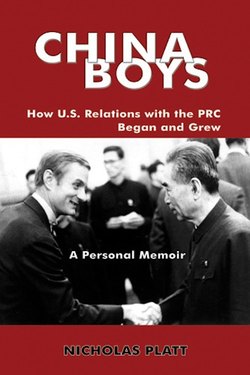Читать книгу CHINA BOYS: How U.S. Relations With the PRC Began and Grew. A Personal Memoir - Nicholas MD Platt - Страница 35
На сайте Литреса книга снята с продажи.
A Difference of Opinion
ОглавлениеThroughout the chaotic months of 1967, the People’s Liberation Army, led by Mao’s chief lieutenant Lin Biao, stayed on the sidelines making half-hearted, localized attempts to referee the violence but avoiding decisive action in most cities. By August, public order in the cities, and with it the fate of the People’s Republic, seemed to be sliding away. Consul General Rice asked me to do a detailed analysis and make a judgment about the survival of the regime. The result became notorious in the analytical community in Hong Kong and Washington as the “bifurcated airgram.”
After a week of writing and rewriting, I sent Ed Rice a detailed draft arguing that the situation had deteriorated alarmingly, but that the point of no return had yet to be reached. Mao still had the option of calling in the PLA to quell the violence and form the basis for a new structure. The consul general disagreed, believing that the deterioration of order was irrevocable. He asked me to go back, review my data, and come up with a new draft. I did, but with the same conclusion.
Famous for his fairness, Rice decided to send in my analysis without edit and append his own dissent as a cover page. I was relieved and delighted. This approach would guarantee a wide readership. Rice’s comment argued, on the basis of his long experience in China, that the regime had entered a “descending spiral,” a tailspin from which it could not pull out. The deputy consul general, Allen Whiting, a noted China academic on loan to the government, agreed with Rice and added a short statement to this effect at the bottom of the cover page.
